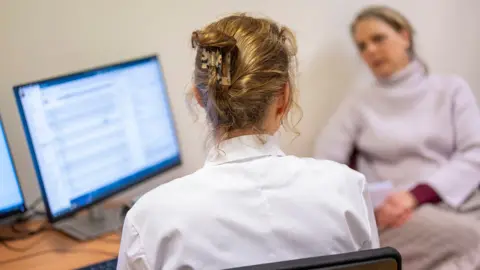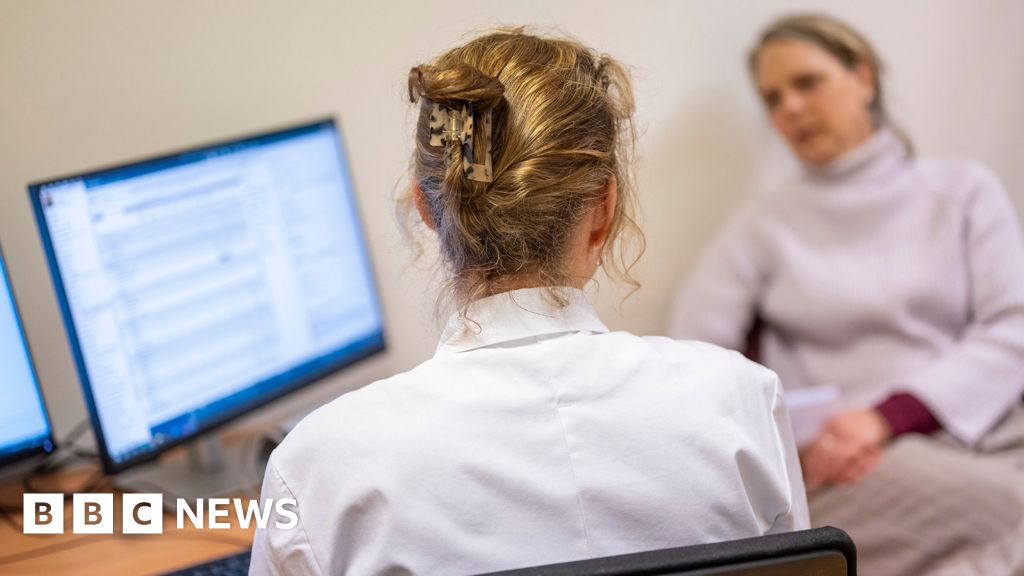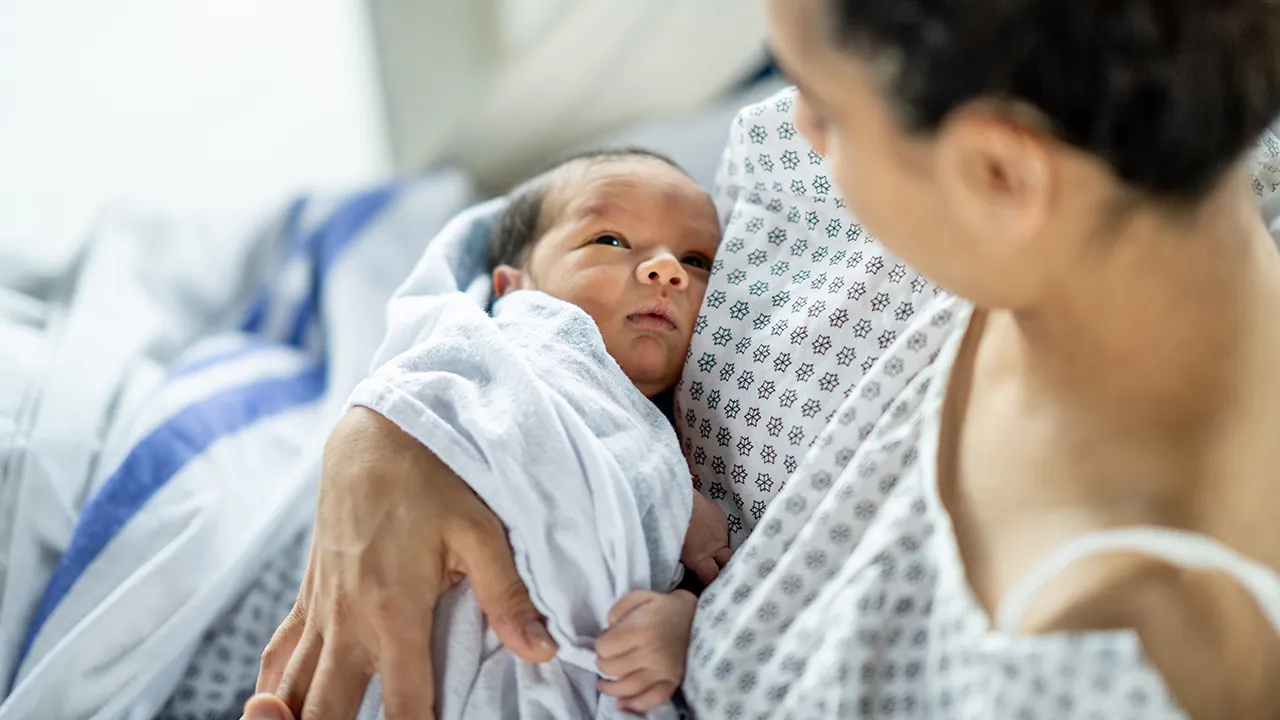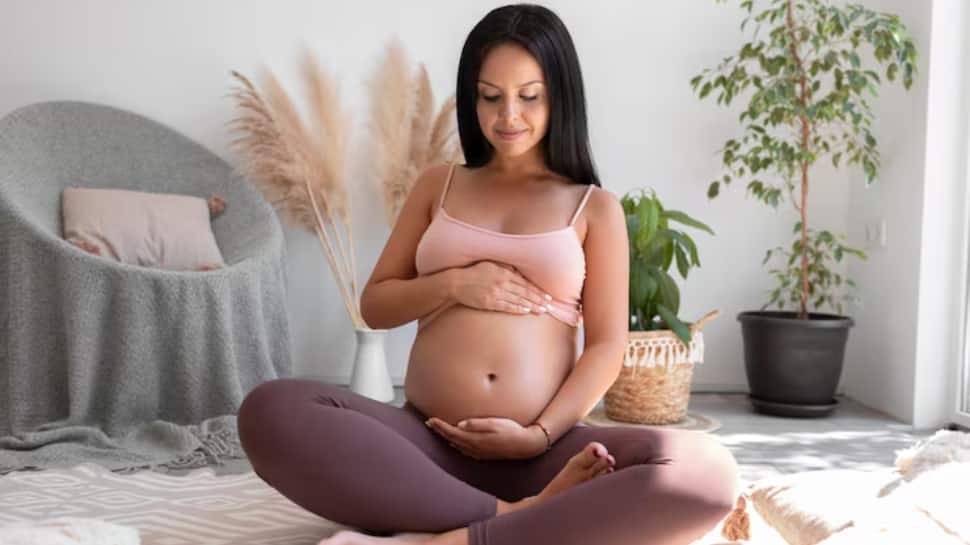Nick TriggleHealth correspondent
 Getty Images
Getty ImagesMenopause screening is to be officially incorporated into NHS health checks in England for the first time.
Women getting the checks – offered to adults aged 40 to 74 every five years – will be asked about the menopause and possible symptoms from next year.
The aim is to identify women who may benefit from advice and support, including treatment, such as hormone replacement therapy (HRT), drugs to combat hot-flushes, and counselling.
The government said the measure will bring menopause into the mainstream, but campaigners warned uptake of health checks was worryingly low in some communities so not enough women may benefit.
Health checks are primarily aimed at identifying people at risk of conditions such as cardiovascular disease, stroke, kidney disease, diabetes and dementia.
They include blood pressure and cholesterol checks as well as measuring a person’s BMI (body mass index) and are normally carried out in pharmacies and GP surgeries.
But under these changes, from 2026 women will also be asked about the menopause.
The exact questions have yet to be decided, but Health Secretary Wes Streeting said he hoped the move would improve the support offered.
“Women have been suffering in silence for far too long and haven’t been encouraged to open up about the symptoms they’re experiencing,” he said.
“This often means they’re left to navigate menopause alone with very little support. No-one should have to grit their teeth and just get on with what can be debilitating symptoms or be told that it’s simply part of life.”
Reduce stigma
Menopause affects all women differently with most experiencing the transition between ages 45 and 55, though symptoms can begin earlier during perimenopause.
Three-quarters of women experience symptoms – from physical changes like joint pain, weight gain and hot flushes to cognitive effects such as memory issues and brain fog.
These symptoms can last an average of seven years and significantly affect daily life, yet research shows fewer than one in 10 feel they have enough information to deal with it.
Women’s Health Ambassador Dame Lesley Regan welcomed the move to ask women about the menopause.
She said: “Some 400,000 women in the UK will become menopausal this year, but the vast majority of them will have very little knowledge of what underlies the many and varied symptoms.”
Prof Ranee Thakar, of the Royal College of Obstetricians and Gynaecologists, said it would help “break down barriers and reduce stigma”.
But she said staff carrying out the health checks would need training for the change to have the maximum positive impact.
And she added more needed to be done to help women from ethnic communities and the poorest areas access NHS health checks.
Janet Lindsay, from Wellbeing of Women, said she hoped the move would help more women understand their symptoms and seek help.
But she too is concerned about uptake of health checks.
“Women and people from marginalised communities are less likely to know about or attend these appointments and progress on menopause support cannot leave them behind,” she said.
Latests figures show fewer than half of people invited for a health check actually attend.





